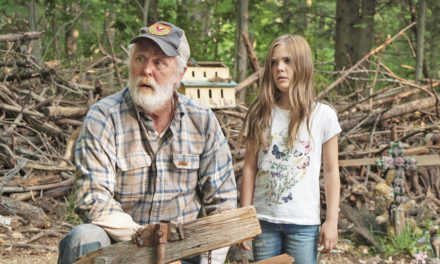
Actress Julianne Moore and her husband and frequent collaborator, director Bart Freundlich, have pooled their collective talents together once again for an Americanized redo of the 2006 foreign film, After the Wedding. Not having seen the original film that served as the basis for this new take on the material I had no preconceived notions about what to expect. Now that I have seen it the biggest mystery is why those involved felt it necessary to remake this film at all.
Taken on its own terms, however, the latest incarnation of the film is a tolerable but middling effort leaving one with a feeling that the sizeable talents on display here, both in front of and behind the camera, could have been better utilized elsewhere. In fact, they have been. Moore was put to much better use in the year’s earlier film, Gloria Bell, which is only one example I could cite.
After the Wedding reminded me of films that were churned out in an earlier era by the great director of this type of sudsy material, Douglas Sirk. Sirk undoubtedly would have had a field day with the raw material contained in this film’s raw story elements. Unfortunately, director and co-writer Freundlich is no match for Douglas Sirk, no matter how hard he may try. It’s not that he’s untalented but his strengths lie elsewhere and not exactly with this kind of material.

Michelle Williams in After the Wedding
The film opens with an introduction to the character of Isabel (Michelle Williams, who also gives it her all), a woman who’s chosen a career path improving lives for children born in poverty, in this case impoverished India. Trouble is that she’s run out of funds and must make a trip back to the states with her figurative hat in hand in order to keep the machinery going. Enter Theresa (Moore) an entrepreneur who also happens to be married to super successful artist, Oscar Carlson (Billy Crudup). In other words, money is not an object for Theresa. Isabel shows up hoping for funding while Theresa is simultaneously dealing with both her daughter’s wedding and selling her business. Theresa invites Isabel to attend her daughter’s wedding and it’s then that the plot kicks into high gear as the character’s relationships to one another and mistakes made in the preceding years are revealed.
After the Wedding doesn’t quite succeed simply because it seems to have an identity crisis. It can’t seem to decide if it wants to be a movie making a political statement about the haves versus the have nots or a tear jerker of the highest order. Unfortunately, in spite of a few choice moments, it doesn’t quite succeed on either front in spite of an admirable effort by all involved.
After the Wedding is currently playing in Charlotte.
Questions or comments? [email protected]









